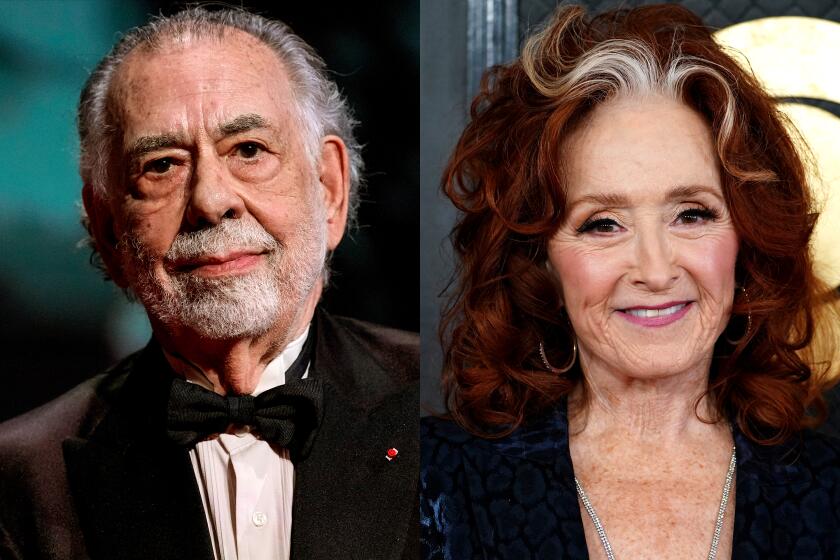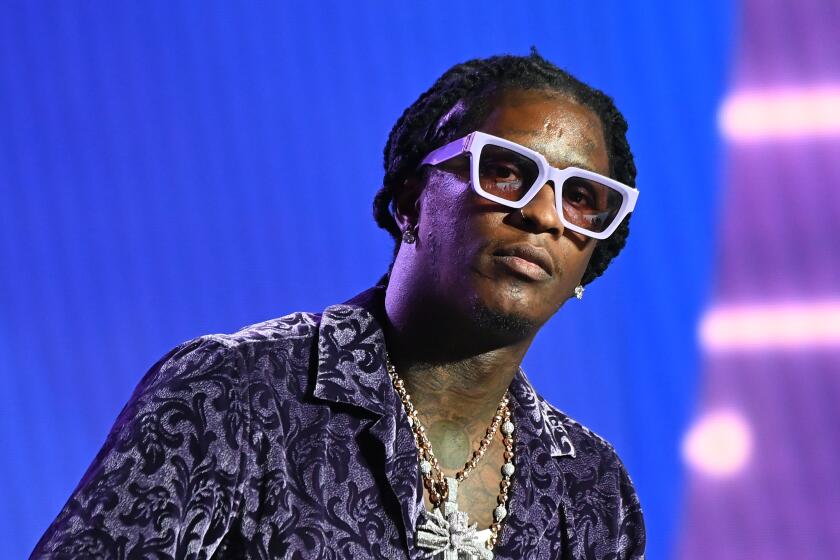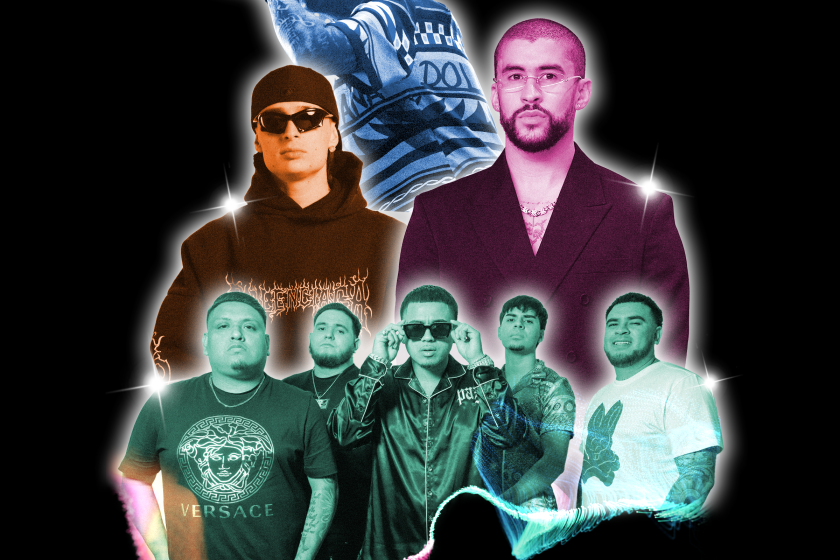POPPING IN ON GRANT GEISSMAN
What manner of man is Grant Geissman? A jazz musician? A pop composer who dreams up TV music for animated cartoon shows to delight the Saturday morning kid crowd? Prominent Beatles freak who has spent half his life collecting memorabilia about the Fab Four?
He is indeed all of these and more. Though the 34-year-old guitarist from San Jose has had an album, “Portraits” (TBA 224), on the contemporary jazz charts for the past couple of months, he has an impressively mixed bag of previous achievements to his credit: hundreds of jingles; gigs and recordings with David Benoit, Dan Siegel, Carl Anderson and Air Supply; tours of Japan and Europe during a four-year stint with Chuck Mangione (he played the celebrated solo on “Feels So Good”), and a growing series of credits as a composer.
He owes his life in music to five influential forces: his grandfather and the Beatles.
“My grandfather had a lifetime fascination with the banjo,” Geissman said. “Following a Sunday dinner at my grandparents’ house, he’d get out his banjo, I’d bring my guitar, and we’d to through the old song books, singing and playing.
“When I was young, I listened to records by Kenny Burrell, Howard Roberts, Wes Montgomery and other people, like B. B. King. But the reason I began playing at all was the Beatles. That whole British invasion thing intrigued me. I always loved pop music; it was through my teachers that I was steered into a jazz direction.”
During his senior high school year, Geissman studied with a San Francisco teacher, Jerry Hahn, who took him ahead “by leaps and bounds. Until I met him, I had never heard of Charlie Parker, John Coltrane, Dizzy Gillespie. In high school, my jazz orientation had been strictly toward big bands, but Jerry opened my mind up to ways of playing that I never knew existed.”
His jazz education was expanded when, as a student at Cal State Northridge, he came into contact with composer Gerald Wilson, who was teaching a jazz class there, and with Louis Bellson, who lived nearby and often dropped in with arrangements for the students. Geissman wound up playing dates with the Wilson and Bellson orchestras.
One day in 1976, he received a call from Mangione. “It was just for one gig in Santa Monica, but then Chuck asked if I could finish up a tour with him, which meant I had to cut classes for a week. Well, he asked me to join the band and I decided to quit school. I had done my senior recital on classical guitar and had less than a year to go, so I figured this was too good an opportunity to miss.”
The years with Mangione established Geissman firmly as a soloist to be reckoned with. “Chuck was really on a roll at that time and it was a great experience. However, it also tended to typecast me. You know the attitude--’He’s great for what he does, as a jazz player, but we wouldn’t want to call him for a jingle.’ That can become a stigma, and it took a year or two to overcome it until people would finally decide ‘Sure, he’s a jazz player, but also a rock and pop and jingle player and anything else that’s needed.’ It’s important to let it be known that you can do everything.”
During the post-Mangione years, Geissman has never been a permanent member of any one band, though he has worked off and on with such Los Angeles-based bands as the David Benoit combo, the back-up group for singer Carl Anderson and, during the last year of Victor Feldman’s life, the Feldman Generation Band.
Establishing oneself as a recording group leader, even granting the proliferation of record companies competing in today’s market, is far from easy. Geissman made his first LP, “Good Stuff,” for Concord Jazz in 1978. It’s still on the market. After a five-year lull he made “Put Away Childish Toys” for Pausa. It was his contract with TBA, which led to “Drinking From the Money River” in 1986 and “Passport” this year, that put him on the map.
The word guitar has become so generic that it is necessary to add a few specific subdivisions. In most of the nine tracks on “Passport,” he played classical guitar, but some acoustic rhythm guitar parts were added, along with guitar synthesizer effects for color. On the two Sting numbers, “Love Is the Seventh Wave” and “Walking on the Moon,” and on Geissman’s own ingenious 14-bar theme “L.A. Blues,” the guitar is electric.
Despite his increasingly active life in other areas of music, Geissman retains a passionate attachment to the childhood source of his original inspiration. He is, in fact, one of the music world’s most obsessive collectors of Beatles memorabilia.
“When I was a senior in high school, I began going to swap meets to exchange Beatles items. I still haven’t given up. I have hundreds of books about the Beatles; I own one of the limited edition of 2,000 copies of George Harrison’s autobiography, signed by him and bound in leather. I got that from England, but most of my collection was obtained here: Beatles lunch pails, sneakers, Christmas ornaments, a Beatles game called ‘Flip Your Wig,’ Beatles talcum powder and nylons.”
Geissman today is a busy man. At any given time he may be writing music for one of the major animation studios, playing a solo job at the Baked Potato, recording for a jingle or a television series or leading his own six-piece group.
If he cannot be found for a gig around Thanksgiving, the reason is simple: He will be happily wrapped up in the agenda at the Bonaventure Hotel, where, for the sixth straight year, he will attend the annual Beatlefest.
There is another slightly improbable aspect to the Geissman story: His original compositions on the “Passport” album are credited to a publishing company billed as General Confusion Music.
“There’s a logical reason,” he says. “When I was with Chuck’s band, he gave everybody nicknames and mine was Gen. Grant. I simply added the confusion because that seems to be the ongoing state of my life.”
The biggest entertainment stories
Get our big stories about Hollywood, film, television, music, arts, culture and more right in your inbox as soon as they publish.
You may occasionally receive promotional content from the Los Angeles Times.



